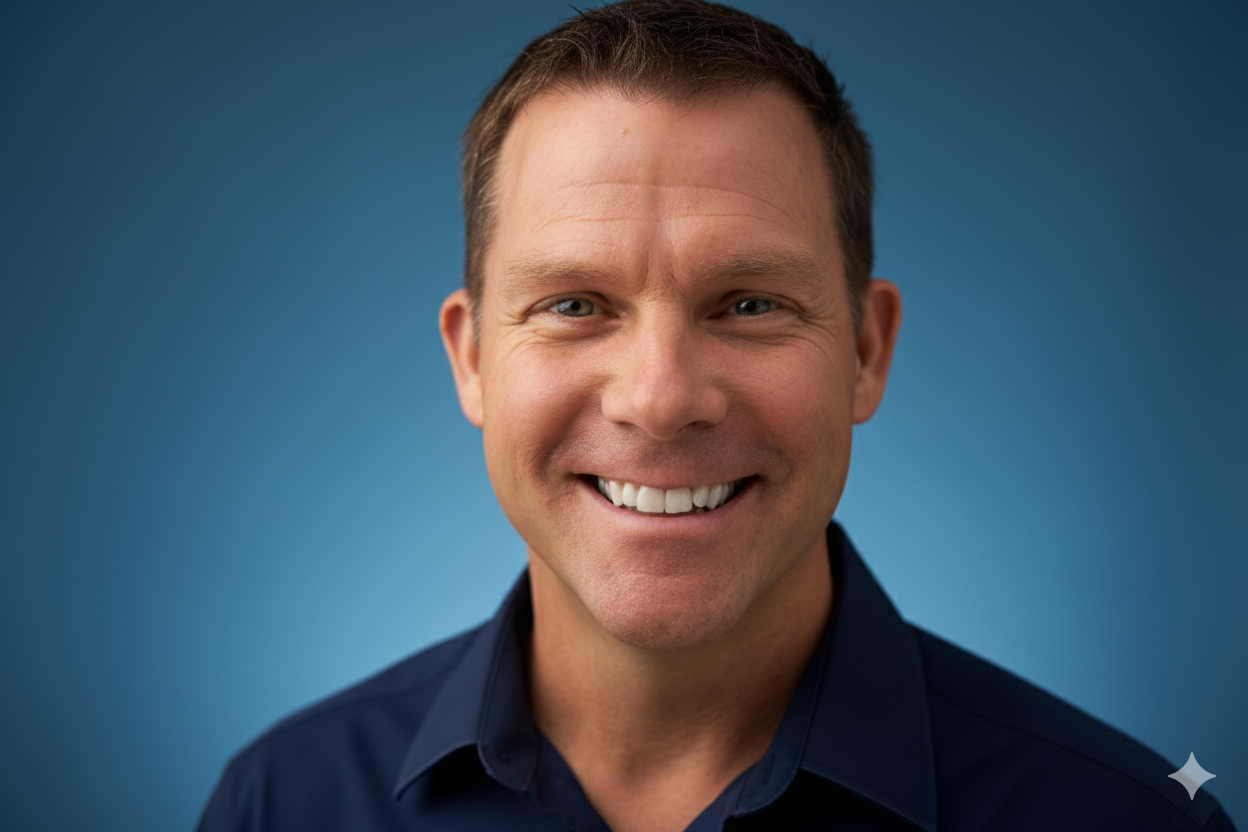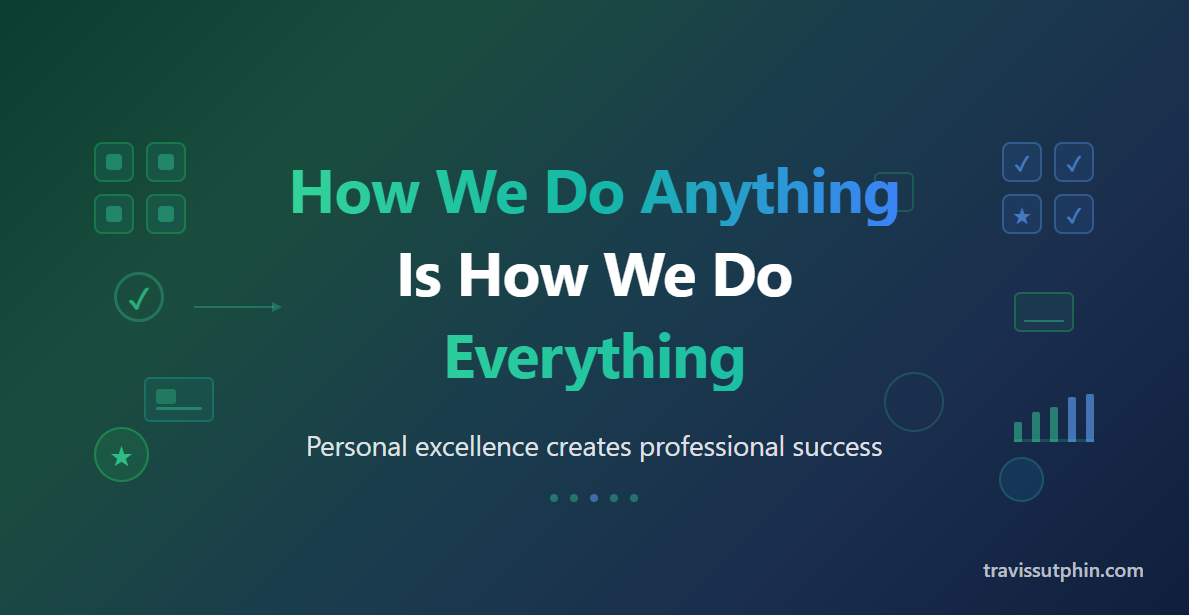How We Do Anything Is How We Do Everything
Project management isn't confined to workspaces, Gantt charts, or deadlines. It's a mindset, a way of approaching life with purpose and precision. I believe in striving daily for excellence, understanding that perfection is unattainable but the pursuit itself creates growth.
How we do anything is how we do everything.
Every action we take reflects our approach to larger tasks and goals. By refining the small, seemingly mundane parts of our lives, we sharpen the skills that make us better leaders, teammates, and individuals.
Ways I Practice This Mindset Outside of Work
- Maintaining a manicured lawn and landscaping: Attention to detail and consistency lead to long-term results.
- Detailing my vehicles: Pride in ownership translates into pride in our work.
- Keeping a clean, organized home: An orderly environment promotes focus and clarity.
- Managing our finances: Budgeting and forecasting are vital skills in any project.
- Organizing my closet: Knowing what I have and where it is saves time and reduces stress.
- Purposefully managing emails and files: Clutter, whether physical or digital, is the enemy of efficiency.
Every one of these tasks hones a specific project management skill: planning, execution, time management, or resource allocation. And the best part? These habits are transferable. They build discipline and mindfulness, which ultimately elevate both our professional and personal lives.
Personal Habits That Signal Professional Excellence
Morning Routine Discipline
Making your bed every morning isn't just about tidiness—it's about starting the day with a win. This same discipline translates to starting work projects with clear objectives and immediate action steps.
Personal Space Organization
A well-organized home reflects an organized mind. The same systems that keep your closet ordered will help you manage complex project documentation and team communications.
Personal Time Management
How you manage personal appointments and commitments directly correlates to how you'll handle project deadlines and team schedules.
Home Maintenance Planning
Regular home maintenance demonstrates proactive problem-solving—a critical skill for identifying and addressing project risks before they become issues.
The Work Impact of Personal PM Habits
Attention to Detail
Maintaining an orderly personal environment develops the eye for detail needed to spot project inconsistencies and maintain quality standards.
Resource Management
Personal budgeting and household resource management build the foundation for project budget control and resource allocation.
Stakeholder Communication
Managing family schedules and coordinating household activities develops the communication skills essential for stakeholder management.
Building the Bridge: Personal to Professional
Every personal habit is a building block for professional success. When we approach our personal lives with the same rigor we apply to work projects, we develop:
- Consistent decision-making frameworks
- Natural prioritization abilities
- Efficient problem-solving reflexes
- Strong organizational instincts
Want to improve your PM skills? Start Doing!
- Tackle the little things with precision.
- Excellence in small tasks will prepare you for the bigger ones.
Remember:
Excellence is not an act, but a habit. The way you manage your personal life is building the foundation for your professional success.
Looking for someone who brings this level of attention to detail to your technical projects?
The same discipline that keeps my personal systems organized helps me deliver flawless project execution. Let's bring that precision to your stuck project.


Comments Coming Soon!
We're building a space for builders to share insights.
Start a Conversation →For now, reach out directly with your thoughts!